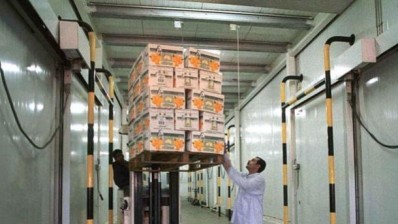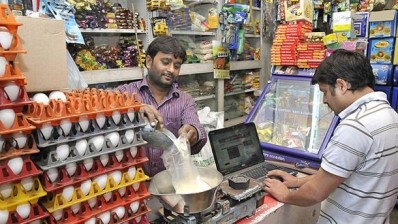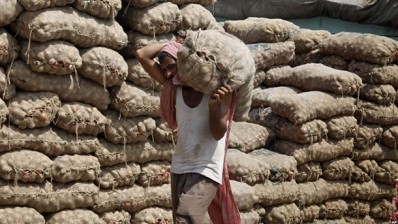Straight talk
FDI will bring the fresh ideas India desperately needs

While opposition parties—and even some erstwhile members of the United Progressive Alliance government—trawled the length and breadth of India to reiterate their objections towards FDI in multi-brand retail, they offered a blinkered and tubthumping perspective that added nothing to the debate.
All they succeeded in doing was to strike fear in the minds of farmers and avoid the real issues that FDI will go a long way to solve. While they warned that the arrival of multinational retailers will put domestic producers and suppliers to the sword, the reality is that opening up the retail market to the waiting scores of international brands will deliver a degree of much-needed modernisation.
And this will be the case across industries much wider in scope than retail alone, while bringing some real efficiency to the food production, processing and distribution segments that are currently and woefully underplayed.
Blind optimism
However, it is the nature of Indian politics, perhaps even more so than in other major democracies, to focus excessively on the positive while the manifold adversities are swept under the carpet.
Under the banner of “India Booming”, government and opposition alike constantly remind the 1.2bn population of how the country is being looked at enviously by struggling Western countries, and broadcast how China is now India’s only competitor in terms of growth.
The media in particular sucks this up like a sponge, and accordingly so do readers, viewers and listeners. It is quite astounding how the words “India’s remarkable growth story” can appear so often in business and industry reports. And people lap it up; it’s always good to know you are doing well.
But while the growth figures paint one picture—and let’s not forget they are slowing quite alarmingly—the reality is quite different. India has a long way to go before it can be seen within the realm of other big emerging markets. Before this can happen, it has to put its house in order.
And as retail forms the centre of the biggest policy moves of the current administration, it should be at the front of all politicians’ minds.
Recently, the Wall Street Journal published the following:
“In the world of perishable goods perishing, India has few rivals. Lacking proper storage facilities, enough refrigerated trucks and adequate highways, the world’s second-largest fruit-and-vegetable producer loses about one-third of its produce each year to spoilage, the government says, roughly $10 billion worth.
“India also is bogged down by an entrenched system of government-imposed middlemen, the scope of which has few parallels, essentially an army of traders and agents who charge various fees along the way. That alone can increase farm-to-store costs sixfold, analysts estimate.”
This is hardly what you would expect to see on a report card for any country that has ambitions to lead the world, economically.
However, the decision to allow FDI will go a long way to answer each of these criticisms. And in a nation where things move at a staggeringly slow pace—and not just in the supply chain—the arrival of companies like Wal-Mart will bring change remarkably quickly.
Enter the experts
It will be well known to readers that the secret of Wal-Mart’s success has been the way it has introduced efficiencies in every step of its supply chain. It has had over half a century of experience in doing this, and today it holds itself as a beacon to retailers the world over—in both mature and developing markets—as the pioneer of bringing goods from producers to stores and passing on its efficiencies to the customer in the form of lower prices.
However, modern Indian retail is considered, as an “industry”, to be just 22 years old—the arrival of the first Shoppers Stop in 1991 is seen as year dot for retail. It doesn’t even have industry status, meaning there is no ministry for retail, there are no government budgets, incentives and tax breaks. There is nobody for the Retailers Association of India to approach to argue its case. And this for an organised market that is worth almost half-a-trillion dollars each year.
Take into account the breadth of unorganised retail, with the myriad kirana shops, stalls and hawkers, and analysts suggest that India is the biggest food retail market in the world.
But corporations that are readying their plans to enter the Indian market know full well that there is no money to be made in India right now, and likely won’t be this decade. Indeed, domestic retail chains have struggled to make any money, and they instinctively know the market. Some, like Future Group, have even expanded their operations too fast and the result is they are drowning in debt.
However, what they all anticipate is that the entry of the likes of Wal-Mart, with their knowledge of distribution, will bring new ideas to drive change in a country with little knowledge of how to go about retail supply. India needs ideas, and it needs figures with experience of carrying them out.
Illogical logistics
Take the roads, for example. A logistics executive once told us that it would take around 72 hours for a lorry to carry goods between Delhi NCR and Chennai, a journey of around 2,300km. This is perhaps double the time it would take in other countries, and still significantly longer than it would to travel a corresponding distance in India’s great rival, China.
There would be delays at every step of the way, not least from the lengthy and disorganised queues for at least seven state border posts. The poor state of the roads and long, convoluted routes add to the sorry state of supply.
While Wal-Mart and other new entrants cannot fix the roads, they can bring their experience to show Indian suppliers how to make the most of the conditions. They can use their strength to remove the self-serving middle-men, who plague so many industries while implementing a number of modernisations in storage and stock-taking.
And they can also highlight the need for bringing producers, processers, warehouses and logistics stations closer together—something that is only pie in the sky at the moment.
Fresh ideas
In Central America, Wal-Mart gained experience in procuring produce from small landowners and upgraded the region’s outdated supply chain; in China, it had to deal with regional restrictions on where it could set up its stores; and in Brazil, Wal-Mart’s successful “Todo Dia” outlets have done roaring business by targeting low-income consumers.
An introduction of fresh supply-chain thinking will in turn have a knock-on effect on other industries that have seemingly been forgotten by central government. Manufacturing, for example, another example of a burgeoning segment but still suffering from a lack of industry status and negligible will from the Centre, will only benefit. Infrastructure and hospitality too. Without putting too positive a spin on it, it all adds up to a win-win for India.
But none of this was addressed by the FDI haters as they toured the country and unleashed their scare stories to agrarian crowds, although the reality will offer much food for thought across all sides.
There is nothing wrong with learning off others with more experience, and very soon indigenous organised retailers are going to be learning from the best.
Have your say: What do you anticipate will be the wider effect of FDI in multi-brand retail? Let us know in the box below.












